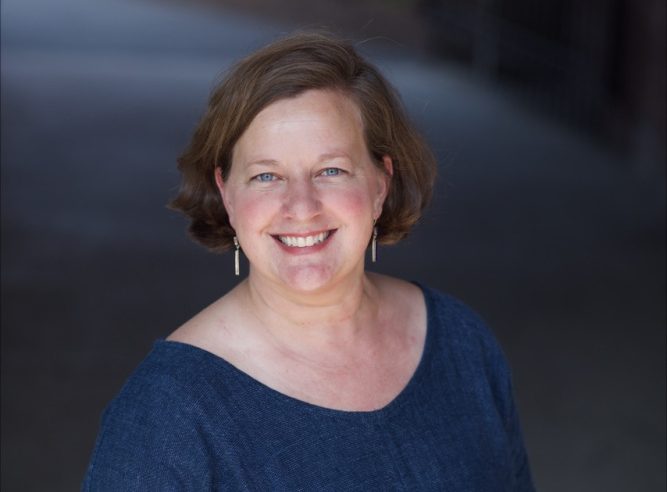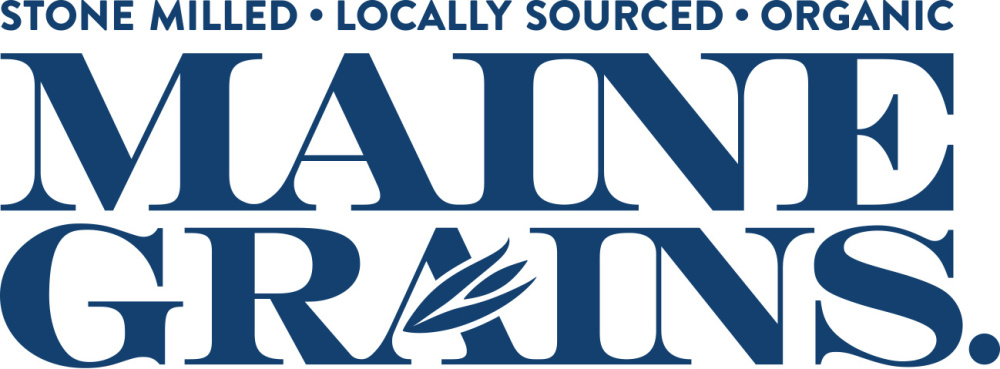Name: Amber Lambke
Age: 43
Title: President and chief executive officer
Company: Maine Grains Inc., Skowhegan
About: Specializes in purchasing local grains to make stone-milled flours and rolled oats.
Website: www.mainegrains.com
What’s your biggest challenge right now?
Managing growth — that’s a good problem to have. Growth means developing new capacities in a lot of areas. We’ve got more staff and new equipment to help expand markets, and every time we bring in a piece there is a minor disruption to business as we know it. That should settle out in about six months.
We have had to add new bins to accommodate the volume of grains we handle. We have a pearling machine coming on line to make pearled farro (a type of wheat) and barley. The pearling machine tenderizes grain for culinary use. When you scour the bran coat, it can take up water more easily. In a lot of our markets where people are interested in purchasing locally, people use these pearled grains instead of rice. And one of our new pieces is a higher capacity of pneumatic transport machine that sucks up the grains and pushes them into whatever bin they go. It moves six times faster than the one we have.
We have been in business five years and this is the first major equipment expansion we’ve had to keep up with our growth.
What’s the best advice anyone has given you?
I have a mentor who likes to remind me of a famous quote: Schedule my priorities, and don’t prioritize my schedule. Priorities come first. I deal with the most urgent things right out of the gate. It’s easy to let a full inbox of emails rule you. As I have learned to run a business for the first time, I am always eager to hear what the secrets of others’ success are and incorporate them. It’s easy to get overwhelmed.
How do you foster creativity in yourself or your staff?
Running a business can be very logistics-oriented and detail-oriented. When you focus on those, you don’t exercise the creative side of your brain. I try to cook from scratch every day. It’s a chance to be creative and quiet my mind. It’s important to quiet our minds and pay attention to observation and pay attention to gut feelings.
We have 12 employees, and we have daily and weekly team meetings. We focus on the goals of the business and where we’re all headed. We give the team autonomy on how things get done. Our plant manager is not telling his folks solutions, but he is seeing what they come up with. In this environment, we are all doing very different jobs, so I keep in mind how I make room for others who have strength scenarios.
What’s your biggest fear?
I think our collective fear is that the pioneers of the local resurgent regionalized food system will run out of time or cash before their businesses become sustainable.
We are in a phase of re-education and waking up as a culture to how important local, sustainably grown food is. It takes time to build the systems.
There is room in markets for products like mine. We’re living in a time when cheap white flour is the norm. For my farmers to be successful, I have to pay them fairly, and I have to get paid.
We know there is a tide moving in the direction of appreciating locally grown foods and what it does for us.
(Maine Grains) is steadily growing. We’re a critical infrastructure component of a thriving grain economy in Maine. If we were not to succeed, we would leave farmers hanging upstream and value-added producers hanging downstream.
The fear is not for my business, but what I see around me. The failure is real. There are a number of businesses in Maine that are not making it trying to do good things.
How do you navigate changing market conditions?
We’re in a good place right now. We’re in the thick of helping our customer base understand the improved flavor and performance of using a freshly milled, local grown product.
The economics are different when we’re supporting the price the farms need to get and our cost of doing business compared to a large-scale milling operation that uses grains from a wide region.
We’re helping our customers understand the impact they are having and understanding the positive impacts they are having in Skowhegan and northern Maine. In Skowhegan, we re-purposed a vacant building in downtown. We make flour and host the farmers market, and we have a cafe in the building and that has brought a lot of attention to Skowhegan. We source grain from Aroostook County. We are creating a rotation crop where (potato) farmers can make money on a rotation crop.
Five Questions is a regular feature in Central Maine Sunday. If you are a local business and would like to be featured, contact reporter Jessica Lowell at jlowell@centralmaine.com.
Send questions/comments to the editors.




Success. Please wait for the page to reload. If the page does not reload within 5 seconds, please refresh the page.
Enter your email and password to access comments.
Hi, to comment on stories you must . This profile is in addition to your subscription and website login.
Already have a commenting profile? .
Invalid username/password.
Please check your email to confirm and complete your registration.
Only subscribers are eligible to post comments. Please subscribe or login first for digital access. Here’s why.
Use the form below to reset your password. When you've submitted your account email, we will send an email with a reset code.